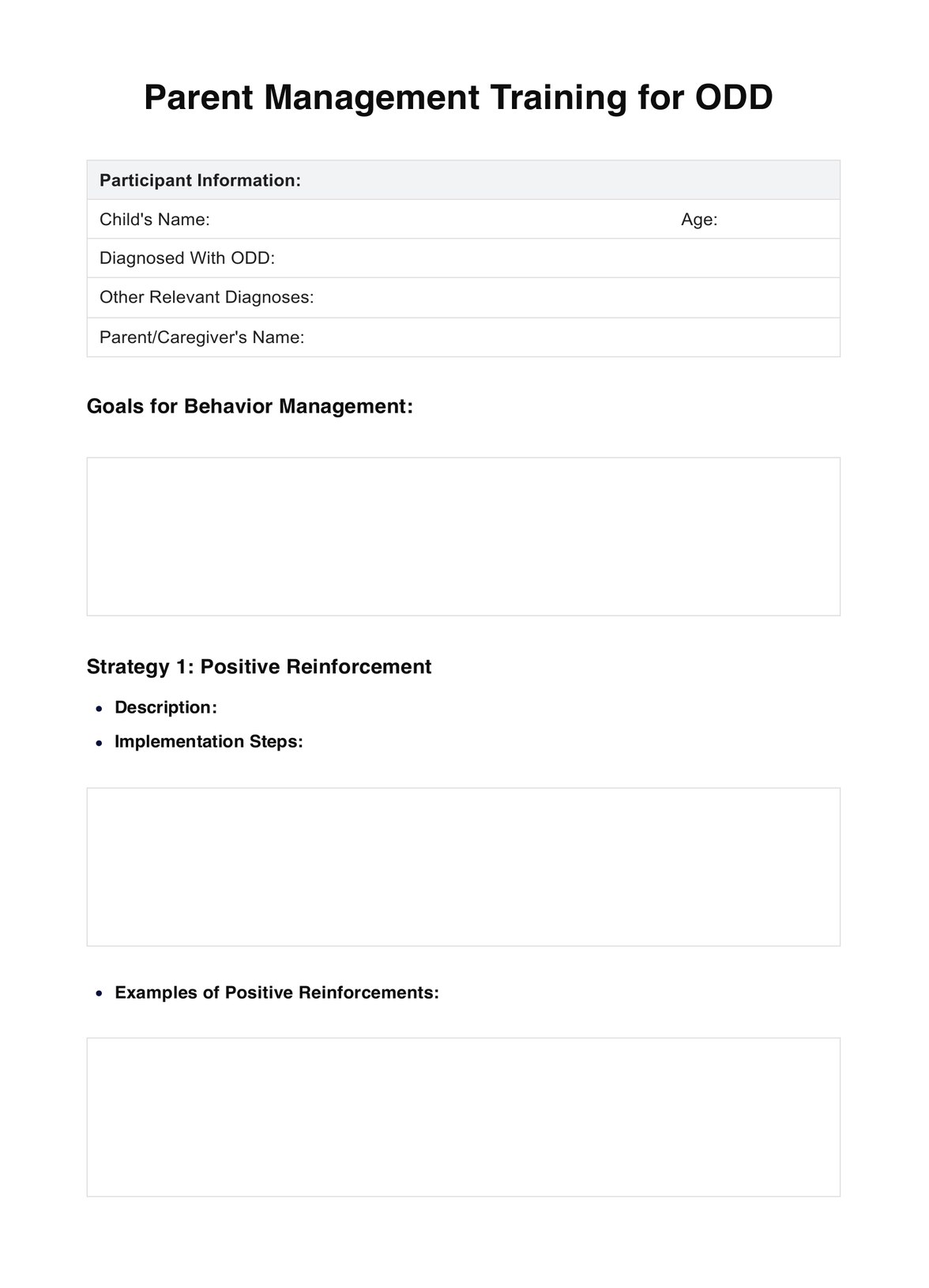Parents can help children with ODD by consistently applying positive reinforcement, establishing clear rules and consequences, engaging in active listening, and participating in PMT programs to learn effective behavior management strategies.

Parent Management Training for ODD
Discover how Parent Management Training (PMT) can effectively address ODD in children. Learn strategies and download a free guide with practical examples.
Parent Management Training for ODD Template
Commonly asked questions
The PMT approach is a therapeutic intervention designed to teach parents techniques and strategies to effectively manage and reduce their child's problematic behaviors, focusing on positive reinforcement, consistent discipline, and improving communication.
Activities that promote cooperation, problem-solving, and communication skills are good for children with ODD. These include team sports, structured games, family projects, and activities that require following directions and working together towards a common goal.
EHR and practice management software
Get started for free
*No credit card required
Free
$0/usd
Unlimited clients
Telehealth
1GB of storage
Client portal text
Automated billing and online payments











